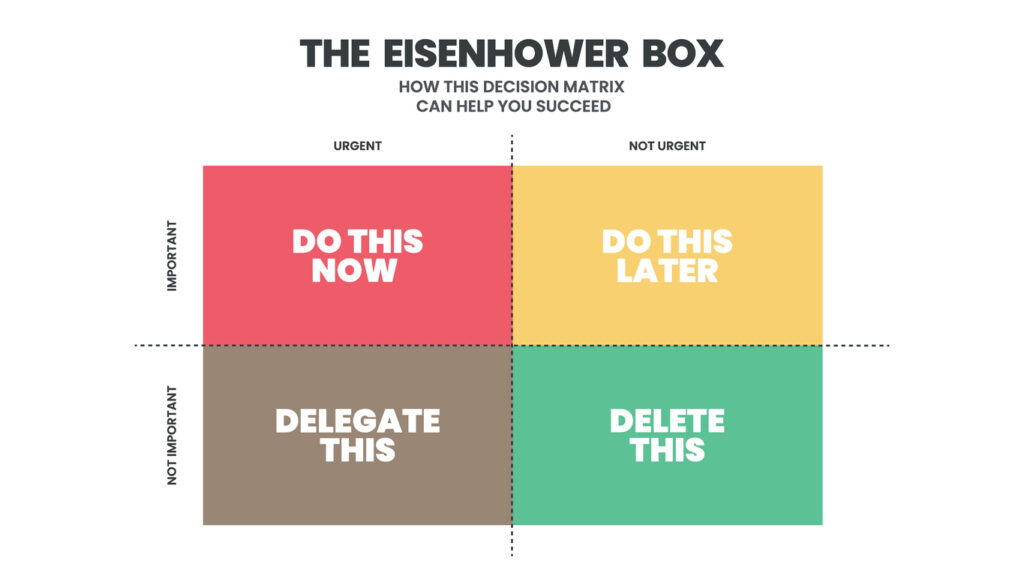
Building executive presence will enable you to contribute to the success of your team, explains Richard Arnott
As an Executive Assistant, your role is vital in supporting and working closely with high-level executives. While executive presence is often associated with those in leadership positions, cultivating it as an Executive Assistant is equally valuable. Let’s explore how you can develop executive presence to excel in your role and make a significant impact.
Executive presence, in the context of an Executive Assistant, involves a set of behaviours that command respect and attention from others within the organisation. As the right hand to executives, you play a crucial role in representing them and their ideas. Building executive presence will enable you to communicate more effectively, influence decisions, and contribute to the success of your team.
Key Strategies to Develop Executive Presence
Professionalism and composure
Exemplify professionalism and maintain composure even in demanding situations. As an Executive Assistant, you act as a bridge between your executive and the rest of the organisation. You know the people in your organisation that you do not really respect due to their behaviours, particularly those that explode at the slightest thing. Don’t be like them! Remaining calm and collected in high-pressure scenarios enhances your executive’s confidence in your abilities and sets a positive tone for the entire team.
Effective communication
Communicate with clarity, brevity, and confidence. When conveying information, be concise and focused on the key points.
Practice active listening when engaging in conversations or meetings, giving your full attention to the speaker and demonstrating genuine interest in what they have to say. This involves maintaining eye contact, nodding or using appropriate verbal cues to show understanding, and refraining from interrupting. By actively listening, you not only gather valuable information and insights but also demonstrate respect for others’ perspectives, which fosters a positive and collaborative environment.
Ensure that your messages are well-structured and easily understood by all stakeholders. Hone your email writing skills for efficient and professional communication, especially in today’s digital age. When composing emails, follow the principles of clarity and conciseness, just like in verbal communication. Keep your messages to the point and organised, making use of bullet points, numbered lists, or headings to structure information logically. This ensures that recipients can quickly grasp the key points and take appropriate action. Always proofread your emails for grammar and spelling errors, as well as tone and overall coherence
Expertise and adaptability
Continuously develop your skills and expertise to become a subject matter expert in areas relevant to your executive’s responsibilities. Possessing in-depth knowledge will make you a valuable resource and enhance your executive presence. Additionally, be adaptable and resourceful, ready to handle diverse tasks and challenges that come your way.
Read what your executive is reading. Don’t be shy to ask what books they consider to be their current go-to sources or which magazines/blogs they read regularly.
Building strong relationships
As an Executive Assistant, cultivating positive relationships with colleagues, stakeholders, and other executives within the organisation is a vital aspect of your role.
I always encouraged my Assistants to be involved in all aspects of our operations. Following any meetings, I would encourage them to provide each team with a detailed summary of the meeting’s key points and action items, ensuring clarity and alignment across all participants, and to take the initiative to follow up with each functional head, expressing appreciation for their valuable input and reiterating my support for their collaborative efforts.
This led to increased trust and admiration from colleagues, resulting in my Assistants becoming the go-to person for bridging communication gaps, facilitating teamwork, and resolving potential conflicts.
As an Executive Assistant, your dedication to cultivating positive relationships and fostering collaboration not only reflects well on you as a skilled professional but also amplifies your executive’s influence and effectiveness within the organisation. Your efforts contribute to a harmonious and productive work environment, benefiting the entire company and helping achieve its strategic goals.
Confidentiality and discretion
It is taken as read by executives that their Assistants will maintain confidentiality and demonstrate discretion in handling sensitive information. Always remember that when trust is lost it is rarely regained. You have one shot. Don’t blow it.
An Executive Assistant with a reputation for trustworthiness and confidentiality enhances the executive’s image and fosters a culture of trust within the organisation.
Problem-solving skills
It is a cliché, but executives want solutions, not problems.
Some people use the phrase ‘natural problem-solver’. Whilst there might be those amongst us that problem-solving comes easily to, they are few and far between. In my opinion, problem-solving is a skill, and a skill that can be learned.
Problem-solving is about getting to the root cause of an issue. Without understanding of the root cause, most solutions tend to be sticking plasters treating the symptoms as opposed to the real reason for the issue that you are facing. Imagine that you are in a wooden rowing boat, and it springs a leak. You have a small bucket and start bailing out the water as rapidly as it is coming in. Have you solved the problem? Clearly not. The root cause is the leak itself. Only by fixing the hole will you solve the problem.
Data and facts are also essential to problem-solving. I have seen too many executives sending their teams off in the wrong direction because their ‘gut’ (or was it arrogance?) told them what the problem was. Gather the facts and analyse the data to see where the real causes lie. Only then can you establish what might be done to remedy the situation.
Demonstrate problem-solving abilities and proactively anticipate your executive’s needs. Being solution-oriented and offering innovative ideas will elevate your standing as a valuable member of the team.
Time management and prioritisation
Efficiently manage your time and prioritise tasks to ensure you meet deadlines and support your executive effectively. This level of organisation and time management reflects positively on your executive presence, showcasing your ability to handle complex responsibilities with ease.
There is a plethora of books, blogs, and articles telling you how to manage your time more effectively. Everyone is a guru, and everyone thinks their solution is best. Having read my fair share of these sources, my firm belief is that it all boils down to two simple questions… Is it urgent? … Is it important?
Only you know the answer to these questions, but by asking them you can decide the best course of action. But be careful…we tend to spend too much time on things that we consider to be urgent but not important and too little time on things that are important but not urgent. I call it a disease known as Urgentitis.
Try to follow the 4D principle (also known as the Eisenhower Matrix): DO IT, DELAY IT, DELEGATE IT, or DUMP IT. If it is urgent and important, then most likely you should DO IT with the option to DELEGATE IT if appropriate. Try to DELAY things that are urgent but not important; you will be surprised at how the urgency tends to be flexible when something is not important. DELEGATE IT only when you are confident that the other person has the skills and capability, and never be afraid of fully DELEGATING a task to become someone else’s full-time responsibility…it releases you to do more strategic things.

Finally, always ask yourself what would happen if you stopped doing the task; if you just DUMP IT, would anybody notice? I can absolutely guarantee that within your organisation, things are being done today that, if they were stopped, the sky would not fall in. I once worked for an organisation that had a team of six full-time people producing KPIs for key clients. Until I came on board, nobody had ever checked with the clients whether the KPIs were being used and what, if any, improvements were necessary. As part of an efficiency drive, we looked at this process and were horrified to discover that all the clients had stopped using our KPIs years ago. Nobody had ever challenged why we were doing this; why would they? It was their job, they got paid to do it. A prime example of a process that can be DUMPED.
Appearance and demeanour
Here I start to step on stones, but this is not a fashion article. Obviously, you should present yourself professionally and appropriately for the workplace. To me, the most important word is ‘appropriately’. Dress in a manner that aligns with your company’s culture and expectations. Working in the City of London is a lot different to working in a young hipster start-up in California. If jeans and T-shirts are the thing, then blend in, but if more formal dress is the norm, then you must comply. In Singapore, where I lived and worked for a number of years, nobody really wears suit jackets. Anyone seen with one was immediately identified as a visitor or newbie. This was due to the constant humidity and heat, and it was pretty sensible. Hong Kong, on the other hand, was more formal; suit jackets were expected even in the height of the oppressive summers.
Yes, I know it is ludicrous, but the reality is that appearances often play an unfair role in how people are judged. In an ideal world, individuals would be assessed based on their merits rather than external looks. However, practical experience demonstrates that this is not always the case. Sometimes we have to comply.
Conclusion
As an Executive Assistant, developing executive presence is a powerful way to enhance your professional impact and effectiveness. By embodying professionalism, effective communication, adaptability, and discretion, you can elevate your standing within the organisation and become an indispensable asset to your executive and the entire team. Remember, cultivating executive presence is an ongoing journey of growth and improvement, allowing you to continuously excel in your role.












